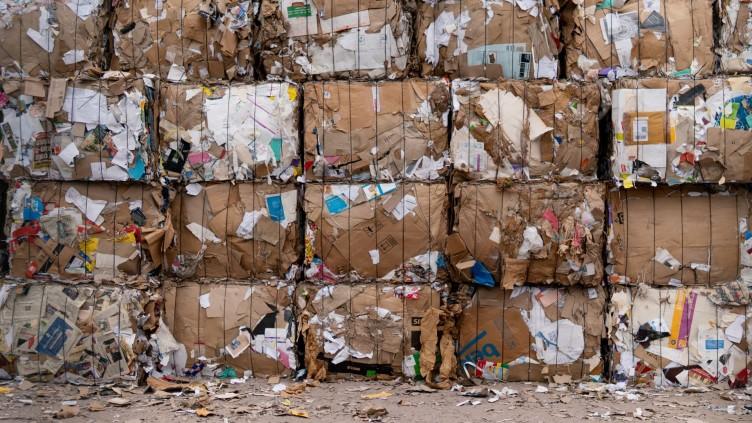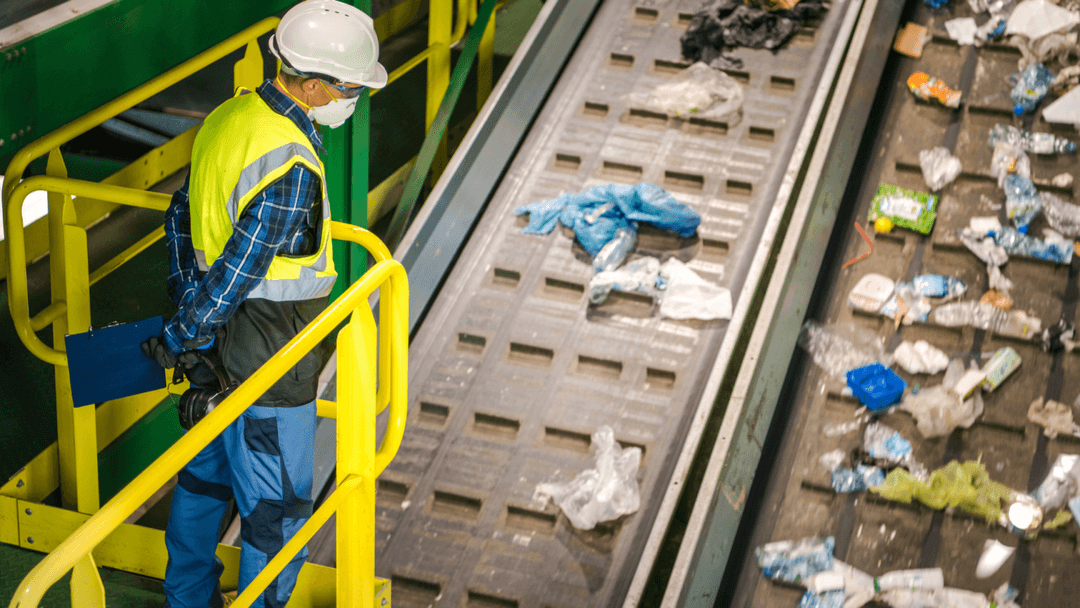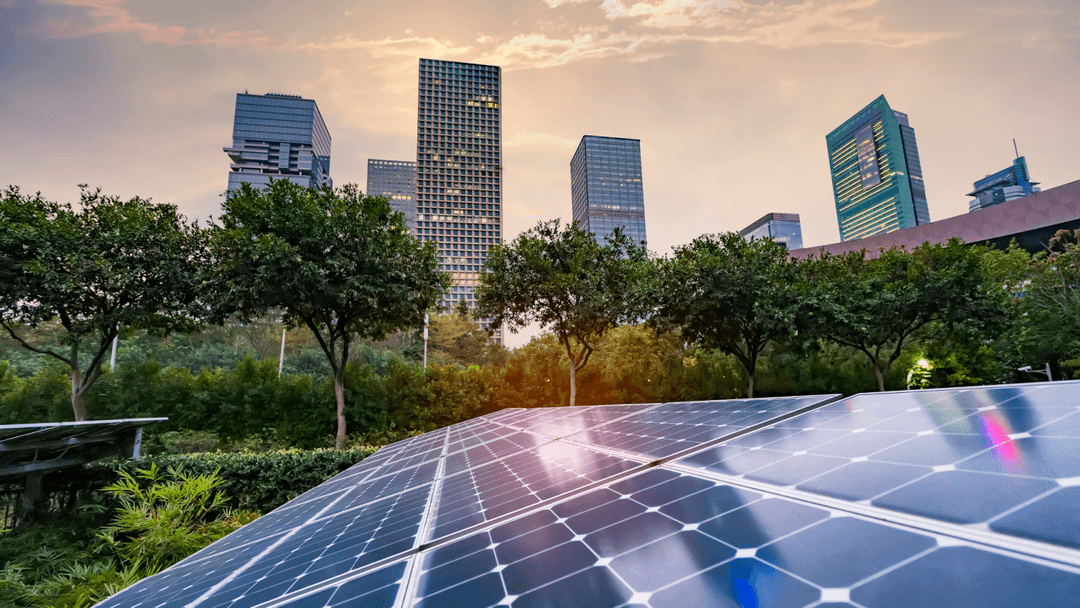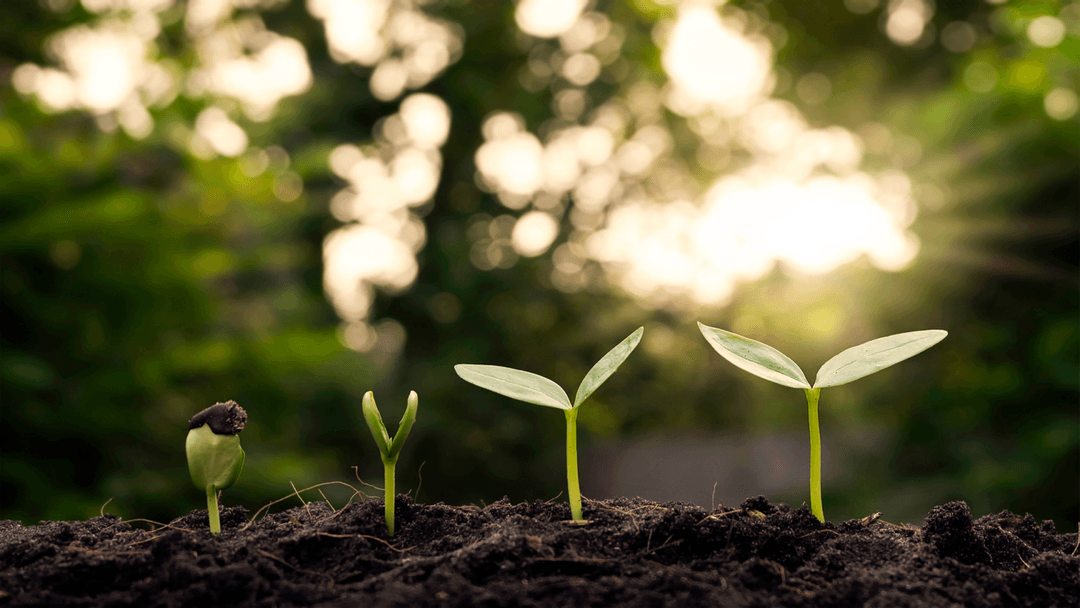The Sustainability Revolution: 6 Trends to Watch in the Next Decade
18 May 2023, By PLAEX Technologies

As we head into the next decade, sustainability is set to become an even bigger topic. With climate change and environmental concerns reaching a critical point, individuals and organizations alike are looking for ways to reduce their impact on the planet. In this post, we'll explore six trends that we expect to see in the world of sustainability over the next 10 years.
Importance of Waste Management in the Sustainability Chain
Waste Management refers to the collection, transportation, processing, recycling and disposal of waste materials. It plays a crucial role in ensuring sustainability through the supply chain. According to Our World in Data, waste greenhouse gas (GHG) emissions from landfills alone (excluding incinerators) in 2016 amounted to 1.9% of global GHG emissions which was the same amount emitted by the entire aviation industry. Proper management of waste can substantially reduce greenhouse gas emissions, conserve resources, and minimize environmental pollution.
A fundamental aspect of waste management is reducing the amount of waste generated in the first place. This can be accomplished by designing products for reuse or recyclability, as well as by reducing the usage of single-use products.

A good example of this can be found in TerraCycle, a global company that specializes in recycling hard-to-recycle material such as cigarette butts, snack wrappers and beauty product packaging. Furthermore, while working on reducing and reusing, we must certainly pay attention to recycling. To facilitate maximum recycling, it is crucial to ensure waste is sorted optimally and cross contamination is avoided. Even in instances where people are provided with multiple bins to sort waste, human error and nonchalance usually creates waste cross contamination - the same result as if they were only provided a single bin to throw everything into. To achieve optimal sorting and avoid cross contamination, intelligent technologies will need to be deployed. PLAEX Technologies is a great example of companies that are providing smart technologies to facilitate minimal waste contamination and maximal material recovery.
When waste is optimally sorted and is thus able to be recycled, it is no longer "waste" but rather resources to be used in the next production cycle. This yields huge benefits by reducing or eliminating reliance on new resource mining and therefore the pollution that comes with such activity.
One of the key trends we expect to see in the next decade is the rise of the circular economy. This is a model that aims to reduce waste and keep resources in use for as long as possible. In a circular economy, products and materials are reused, repaired, and recycled, rather than being discarded after use. This can help to reduce the environmental impact of production and consumption, as well as creating new economic opportunities.
Several companies and organizations have already started to adopt circular economy principles. For example, some fashion brands are experimenting with renting clothing apparel rather than selling it, while others are using recycled materials to create new garments. We expect to see more businesses hopping on this trend and embracing the circular economy in the coming years, as consumers become more aware of the environmental impact of their purchasing choices.
The Growth of Renewable Energy

Another trend that has been on the rise is the growth of Renewable Energy. As countries and organizations commit to reducing their carbon emissions, the demand for renewable energy sources such as solar and wind power is set to increase. This can help to reduce our reliance on fossil fuels, which are a major contributor to climate change.
In recent years, the cost of renewable energy has fallen significantly, making it more accessible to businesses and individuals. This trend is set to continue, with experts predicting that renewable energy could account for up to 80% of global electricity generation by 2050. We also hope to see more investment in energy storage technologies, such as batteries, which can help to make renewable energy sources more reliable.
The Rise of Plant-Based Diets
As concerns about the environmental impact of animal agriculture grow, we expect to see a rise in the number of people adopting plant-based diets. Livestock production is a major contributor to greenhouse gas emissions and deforestation, so reducing our consumption of animal products can help to reduce our impact on the planet.
In recent years, there has been a significant increase in the availability and variety of plant-based products, from meat substitutes to dairy alternatives. This trend is set to continue, with more businesses and restaurants offering plant-based options. We are also able to see more people adopting flexitarian or reducetarian diets, where the aim is to reduce meat consumption rather than eliminating it altogether.
The Emergence of Green Finance
Green finance is a term used to describe financial products and services that support sustainable development. This can include investments in renewable energy, sustainable agriculture, and environmentally-friendly technologies. As sustainability becomes a key issue for businesses and individuals, this field is likely to grow as well.
Governments and financial institutions are already taking steps to promote green finance. For example, all the way in 2018, the European Union has launched a sustainable finance action plan, which aims to create a carbon-neutral and climate resilient economy by 2050, while some banks are offering green mortgages and loans. We expect to see more innovation in this area in the coming years, as investors look for ways to support sustainable development.
The Growth of Sustainable Transportation
Transportation is a major contributor to greenhouse gas emissions, so finding ways to reduce the environmental impact of our vehicles is crucial. We expect to see a rise in the use of electric and hybrid vehicles, as well as increased investment in public transportation.
In recent years, electric vehicles have become more affordable and accessible, with many countries offering incentives for their purchase. More and more people are switching to electric or hybrid vehicles as the technology improves and the infrastructure for charging stations expands. With the rise of electric/hybrid vehicles, we are likely to see more investment in public transportation, with a focus on making it more affordable, accessible, and environmentally friendly.
While these technologies are still in developing stages, they have the potential to revolutionize the way we travel, create unique business opportunities and reduce the environmental impact of transportation.
The Importance of Individual Action

Finally, we would like to put emphasis on individual action when it comes to sustainability. While government policies and corporate initiatives are important, individuals also have a role to play in reducing their impact on the planet. This can include actions such as reducing energy consumption, recycling, and reducing meat consumption.
As sustainability becomes a more pressing issue, there needs to be a shift in attitudes towards personal responsibility. Education and awareness campaigns play a crucial role in bringing these issues to the light and encouraging individuals to take action. By working together, we can create a more sustainable future for ourselves and future generations.
Conclusion
The next decade is set to be a pivotal one for sustainability. With climate change and environmental concerns reaching a critical point, businesses, governments, and individuals are all looking for ways to reduce their impact on the planet. We expect to see a rise in the circular economy, renewable energy, plant-based diets, green finance, sustainable transportation, and individual action.
As we navigate the challenges of the coming years, it's important to remember that we all have a role to play in creating a more sustainable future. By embracing these trends and taking action in our own lives, we can help to create a healthier, more equitable, and more sustainable world.